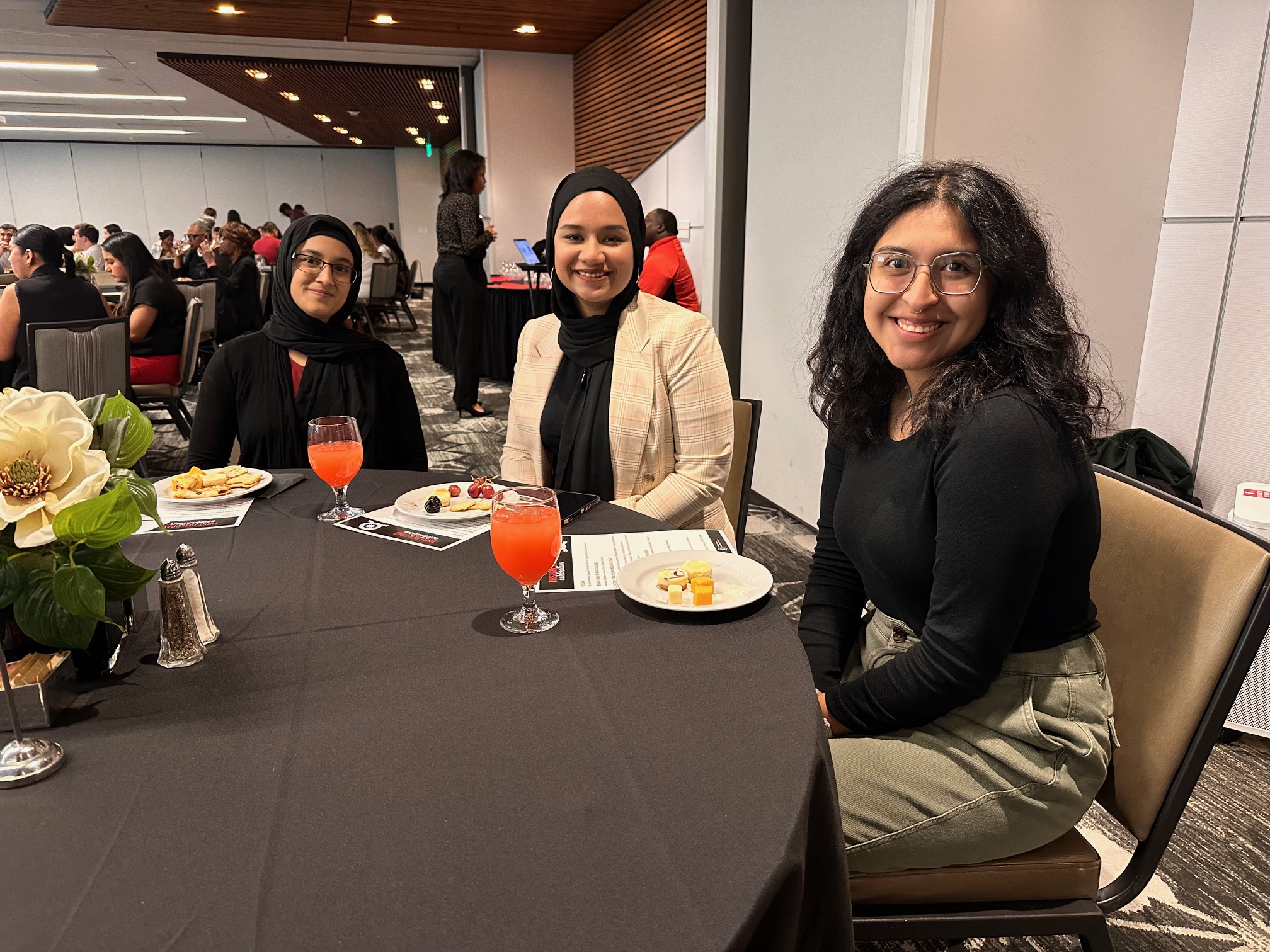Developing effective study skills now will set you on the path to success. Concentration, environmental changes, and engaging with others can be just what you need to enhance your study life. This section includes a menu of websites, videos, infographics and written materials to help achieve your goals.
Strategies
Learning and Studying
To say you have learned something infers that you have encountered new information and have actually neurologically altered your brain (Doyle & Zakrajsek, 2013). Each time you engage with new material – via lectures, readings, videos, or other mediums in which you receive information – your neural networks expand. When these neural networks are frequently activated/visited – such as when you study materials or practice skills – these new networks have the potential to become long-term memories. Repetitive activation of these networks strengthens connections and recall of this information (for a test or exam for instance) is increasingly easier. Below, you will see our recommended approach to ensure that students learn (i.e., create neural networks) and retain the information/skills you’ve learned (i.e., strengthen these networks).
Implement the Study Cycle (McGuire, 2015)
- Preview material (i.e., relevant, assigned reading/material and/or recommended supplemental reading/material) prior to attending class. Flip/scroll throughout the pages and notice terms, concepts, headings, etc. within the reading. Generate your own questions concerning what you believe you would be able to answer by the end of the reading and class attendance. If you are in a class without a text or a class where you are assigned practice problems/homework, you should peruse the practice problems/homework prior to attending class.
- Attend class and make meaningful notes. For tips on effective Note-Taking, visit our website here.
- This is a crucial stage: Review your notes after class. Compare the notes you made when reading for class, previewing before class, and during class to assess consistency. This means that you will look for repeated themes or any “holes” in your notes. For example, if you notice that a particular concept was present in your assigned reading, notes you wrote and was also emphasized in the lecture, you might consider learning and studying that information in depth in preparation for an exam/quiz/test. However, it is also essential to assess if there was information that was provided in the reading that was not emphasized in the lecture. Alternatively, your instructor may have introduced and emphasized a new concept that was not elaborated on in your assigned reading. We encourage you to:
- Seek supplemental resources (i.e., ask your professor if there is some supplemental reading/information to clarify any points of confusion) and
- Clarify how this learning this information will be assessed (i.e., ask your professor how you may prepare for the test/exam/quiz that will cover this newly introduced information).
- This stage is arguably the most crucial stage: Study the information that you’ve learned. Intentionally plan brief (e.g., 20, minute, 30 minute, 1hr interval) study sessions throughout your day and week. Again, learners should focus on reactivating those neural networks (see above) to strengthen these connections and improve the ability to recall this information. How do you do this? Repeatedly engaging with information. During these brief study sessions, you may use study tools (e.g., flashcards, mnemonic devices, outlines, etc.) to ensure you understand and remember You may engage in studying activities (elaborated on below) ensure long-term retention and recall. Reward yourself for your hard work (e.g., take a break to call a friend, scroll on your social media, meditate, etc.)—it’s important to do this to cultivate positive emotions and support motivation. If you do these before class, during breaks, or after class all throughout the week, you may be able to simply review on the weekends.
- Lastly, check your knowledge. Ask yourself first, do you understand the materials well enough to teach it to someone else—this is a true test of understanding material. If you feel that you are progressing towards that stage with the strategies that you are using, then continue to work towards the goal of being able to be an expert and teach this concept/material. However, if you realize that you feel “stuck”, more confused, not as confident as you’d like to feel, we suggest that you identify the information/problem types/concepts/etc. that trouble you and chat with a professor or peer tutor.
Study Tools and Activities (Doyle & Zakrajsek, 2013; Fiorella & Mayer 2015; McGuire, 2018)
Create Flash Cards
Flashcards are used for a course that requires memorization. You may make these by hand or use a tool like Quizlet (a website to create virtual cards). Essentially, on one side you would right a term/concept. On the back, you would write a description, description, or definition of the term/concept.
Use Mnemonic Devices
Mnemonic devices are memory aids in which an acronym is created to group terms/phrases that one needs to remember together. For example, ROYGBIV is an acronym in which each letter represents the first letter of color on the color spectrum. This helps the learner create a pattern to “chunk” information that they would need to recall collectively.
Create and Review Summary Sheets
To ensure you understand (or assess whether you truly understand content), students may learn by summarizing. Afternoon reading or attending class, create a written or oral summary of the material you’ve learned.
Make a Concept Map
When appropriate and relevant, students may choose to create a spatial representation of the material they’ve learned. Organize key terms and concepts visually and describe the relationship between these terms/concepts with arrows and phrases describing the significance of these arrows. For example, in an anatomy class, students may create a concept map to demonstrate an understanding of how systems of the body operate in sync.
Draw it Out
When appropriate and relevant, students may choose to draw images that represent the material they’ve learned. For example, in an anatomy course, a student may want to practice roughly sketching physiological systems to demonstrate memory of the organs of the systems.
Test Yourself
Students should repeatedly test themselves using practice problems provided by the instructor, previous homework questions, or self-generated practice problems. Students may want to keep a note of challenging problems (i.e., in-class problems/questions, challenging homework questions, etc). These questions help students identify the content they should revisit and ensure understanding. Note that students strengthen their neural networks by repeatedly accessing and recalling information.
Teach Someone the Concept
To ensure understanding of the content, students are encouraged to try explaining content that they’ve learned to themselves or to others. Students should learn information well enough to explain it/teach it to others. If they are unable to do so, they should consider seeking support from their faculty members, graduate assistants, peer learning assistants, tutors, supplement reading or other helpful resources suggested by reputable experts (i.e., website recommended by professors, graduate students, or peers).
Additional Recommendations
- Visit your professors during office hours. In the event that you have Peer Learning Assistants (PLAs) or Graduate Assistants (GAs) assigned to your course, you may seek support from them as well.
- Use Tutoring Services provided by the Office for Student Success and Achievement. Sign up for tutoring or visit during drop-in hours. Our tutoring offerings are designed to fit the needs of students, so we provide tutors for a plethora of courses.
- Seek assistance from our certified Academic Coaching team. Academic Coaching is an appointment-based program offered to UGA students to discuss pathways to success.
For more elaborate explanations of the strategies discussed above or to generally learn more about effective approaches to learning and studying, students may consider reading the texts cited above (see references below).
References
Doyle, T., & Zakrajsek, T. (2013). The new science of learning: How to learn in harmony with your brain. Stylus Publishing, LLC.
Fiorella, L., & Mayer, R. E. (2015). Learning as a generative activity. Cambridge University Press.
McGuire, S. Y. (2018). Teach yourself how to learn: Strategies you can use to ace any course at any level. Stylus Publishing, LLC.
Further Reading
Improving Concentration
This is a great tool to help improve concentration and focus while trying to study.
Studying 101: Study Smarter, Not Harder
Translating text into a quick video for student to watch with text document at end for them to remember and plan for moving forward would make this truly useful and highly used.
Evidence-Based Studying Video
Video summarizing some of the points in the previous resource.
Studying for STEM
Tips from the Learning Center at the University of North Carolina at Chapel Hill.
Studying in Groups
Benefits and functioning of study groups.
Other Resources
- https://learningcenter.unc.edu/tips-and-tools/the-study-cycle/
- https://learningcenter.unc.edu/tips-and-tools/using-office-hours-effectively/
- https://learningcenter.unc.edu/tips-and-tools/studying-for-math-classes/
- https://learningcenter.unc.edu/tips-and-tools/academic-listening-strategies/
- https://learningcenter.unc.edu/tips-and-tools/using-concept-maps/
Recommended Apps
Dragon Dictation
Use your voice to dictate a text message or email, create a Facebook status updates or a tweet, and anything in between. Simply speak and see your text content appear.
Note: This app is only available for iOS.
Forest App
This app is designed to help keep you motivated to staying on task and not get distracted or temped by being on your phone when you should be studying. Plant a tree and it will grow while you stay off your phone.
Stay Focused
This is a web extension that can be downloaded to help prevent you from being on time-wasting websites while you should be focused on your work.



